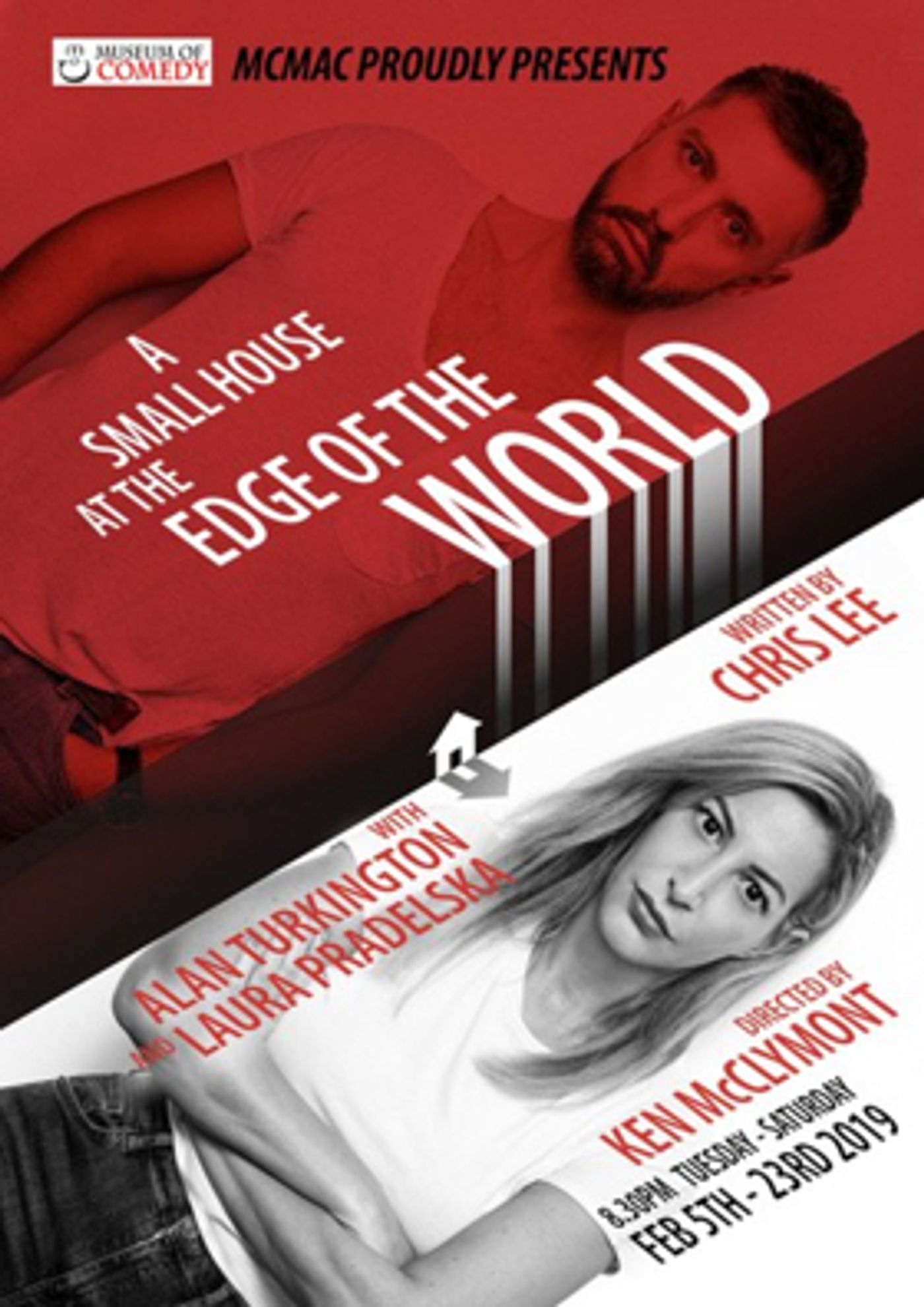Laura Pradelska Returns to the Stage in A SMALL HOUSE AT THE EDGE OF THE WORLD

Following the success of the world premiere of award-winning writer Chris Lee's exciting and poignant play which debuted at Chiswick's Tabard Theatre in Sept 2018, Laura Pradelska (Game of Thrones, Summit Conference) and Director Ken McClymont (Dogstar, Doig, Beak Street, Sherlock Holmes and the Invisible Thing, I Am Of Ireland) return for a second run in London's West End, joined by new co-star Alan Turkington.
Alan Turkington has just finished a run of Antony and Cleopatra at the National Theatre and other credits include Hamlet at Donmar, The Tempest, The Winter's Tale, Pericles (Royal Shakespeare Company) and film appearances in Mary Queen of Scots, King Arthur - and many more.
A Small House at the Edge of the World is the story of how one location captures and distills two lifetimes worth of love, joy, and sorrow. A man and a woman fall in love, marry, have a child, drift apart, re-engage, haunt each other and become the dust of dreams. The play's lyrical but brutal power shows how relationships are fused, transformed and remade by passion, guilt and difficult truths.
About the writer Chris Lee: Chris is an Irish writer living in London. He has had over 20 productions of his plays in eight different countries. He has won the Stewart Parker Award, the Rondo Playwrighting competition, a Pearson Bursary and been Writer in Association with The Abbey Theatre Dublin. Ken has directed two of his plays (Hummingbird and Eat the Enemy).
In Chris Lee's words, synopsis of the play: "I wanted to try and show how relationships can endure/suffer/disintegrate without there having to be a necessarily guilty person. I was also interested in the possibility of exploring a period of time that is longer than the one usually portrayed in plays. That's when I came up with the idea of a single location, a point in space and time if you like, where all of the events shown have taken place, or possibly are still taking place, all at once if you will. The play tries to suggest that what we value should be relished at the time of its occurrence, that because one person has ceased to love another that does not negate the reality of that love at the
time when it burned bright, that we are not summaries of anything, we do not arrive at an endpoint where our lives can be judged. We are rather, constantly flowing personalities that bind and part and rebind. Some of us are better at long-term relationships than others."
Videos

